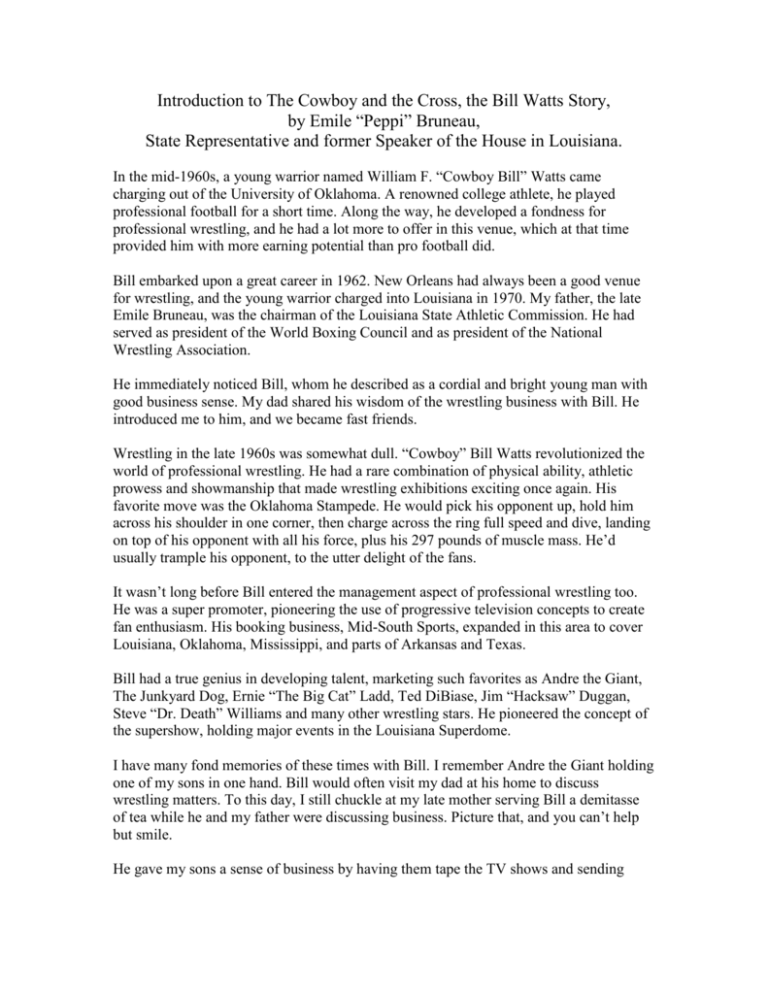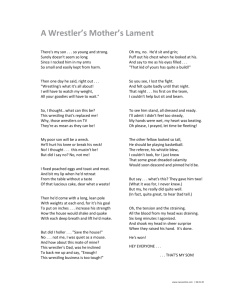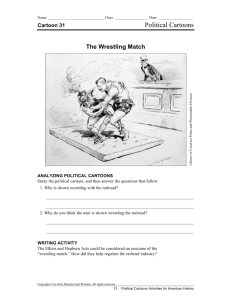Introduction to The Cowboy and the Cross, the Bill Watts Story, by
advertisement

Introduction to The Cowboy and the Cross, the Bill Watts Story, by Emile “Peppi” Bruneau, State Representative and former Speaker of the House in Louisiana. In the mid-1960s, a young warrior named William F. “Cowboy Bill” Watts came charging out of the University of Oklahoma. A renowned college athlete, he played professional football for a short time. Along the way, he developed a fondness for professional wrestling, and he had a lot more to offer in this venue, which at that time provided him with more earning potential than pro football did. Bill embarked upon a great career in 1962. New Orleans had always been a good venue for wrestling, and the young warrior charged into Louisiana in 1970. My father, the late Emile Bruneau, was the chairman of the Louisiana State Athletic Commission. He had served as president of the World Boxing Council and as president of the National Wrestling Association. He immediately noticed Bill, whom he described as a cordial and bright young man with good business sense. My dad shared his wisdom of the wrestling business with Bill. He introduced me to him, and we became fast friends. Wrestling in the late 1960s was somewhat dull. “Cowboy” Bill Watts revolutionized the world of professional wrestling. He had a rare combination of physical ability, athletic prowess and showmanship that made wrestling exhibitions exciting once again. His favorite move was the Oklahoma Stampede. He would pick his opponent up, hold him across his shoulder in one corner, then charge across the ring full speed and dive, landing on top of his opponent with all his force, plus his 297 pounds of muscle mass. He’d usually trample his opponent, to the utter delight of the fans. It wasn’t long before Bill entered the management aspect of professional wrestling too. He was a super promoter, pioneering the use of progressive television concepts to create fan enthusiasm. His booking business, Mid-South Sports, expanded in this area to cover Louisiana, Oklahoma, Mississippi, and parts of Arkansas and Texas. Bill had a true genius in developing talent, marketing such favorites as Andre the Giant, The Junkyard Dog, Ernie “The Big Cat” Ladd, Ted DiBiase, Jim “Hacksaw” Duggan, Steve “Dr. Death” Williams and many other wrestling stars. He pioneered the concept of the supershow, holding major events in the Louisiana Superdome. I have many fond memories of these times with Bill. I remember Andre the Giant holding one of my sons in one hand. Bill would often visit my dad at his home to discuss wrestling matters. To this day, I still chuckle at my late mother serving Bill a demitasse of tea while he and my father were discussing business. Picture that, and you can’t help but smile. He gave my sons a sense of business by having them tape the TV shows and sending them to a national wrestling magazine for review. After my dad passed away, I began to represent Bill as his attorney. Wrestling in America had always been a regional business, but trends seemed to counter this. Mid-South continued to grow and was poised to go national. Unfortunately, interests from New York decided that they were going to control wrestling nationally, and they persuaded the governor at the time (now in federal prison) to direct the Boxing and Wrestling Commission to allow them to commence promotions in Louisiana. They also proceeded with a wholesale raid of talent. Soon buffoonery became the mainstay of professional wrestling. The business had changed — and not for the better. Bill sold his interests and retired from the wrestling business. He applied his talents in other areas and remains a highly successful businessman. Although we don’t see each other very often anymore, we are still in communication and remain close friends. Bill was and continues to be a person of the highest integrity who applies the Christian ethic to every aspect of his life. Today the warrior, no longer young, has some gray around his temples. Yet he remains the embodiment of the saying “The code of the warrior does not know the word surrender.” He never has; he never will. Emile “Peppi”Bruneau January 16, 2005



